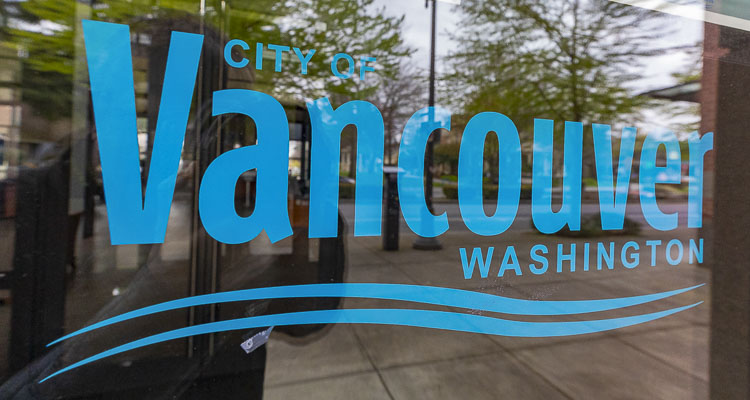
An unprecedented amount of funding for greenhouse gas reduction and climate resiliency projects will be available in 2023 via the federal Inflation Reduction Act of 2022
VANCOUVER – On Monday (Dec. 5), the Vancouver City Council approved a resolution to adopt the city’s Climate Action Framework (CAF), a blueprint to reduce greenhouse gas emissions and build resiliency to climate change impacts. The CAF defines initial strategies and actions necessary to achieve the following greenhouse gas (GHG) reduction goals:
- An 80% reduction in GHG emissions by municipal operations by 2025
- An 80% reduction in GHG emissions by the Vancouver community by 2030
- Carbon neutrality by both municipal operations and the Vancouver community by 2040
“Our ambitious climate-neutrality targets require immediate action, adopting this Climate Action Framework now rather than later is a necessary step forward,” said Mayor Anne McEnerny-Ogle. “We can’t wait, we have to start protecting our community now.”
An unprecedented amount of funding for GHG reduction and climate resiliency projects will be available to local jurisdictions in 2023 via the federal Inflation Reduction Act of 2022, and adoption of the CAF makes the city eligible to apply for that grant funding.
“I appreciate staff, this council and our former colleagues who also participated in setting these goals for us,” said Councilor Ty Stober. “This is a day that I have been waiting for my entire seven years on council, and I couldn’t be more excited that we’ve come this far.”
“Vancouver’s Climate Action Framework translates our concern with damage to our climate into effective action,” said Councilor Diana Perez. “This is good for the city of Vancouver, and it benefits our children, our neighbors, and future generations. We must inspire hope in agencies, in people and in organizations across the city and in this region.”
Adoption of the CAF also:
- Establishes strategies to protect vulnerable communities such as low-income people, communities of color, people with health issues, the elderly, young people, and unhoused people from the impacts of climate change.
- Provides needed guidance as staff approach efforts such as the update of the city’s Strategic Plan and the Comprehensive Plan.
The city co-developed a robust list of strategies and actions with community partners through surveys, roundtable meetings, one-on-one meetings with individual community members and stakeholder groups, and multiple rounds of review.
“The adoption of this Climate Action Framework serves as a launch point for putting strategies into play that will help define further next steps and future targets for achieving the city’s GHG reduction goals,” said city Senior Policy Analyst Rebecca Small. “It is a living document, so it is up to us to keep it alive, growing and fed with the latest science and innovations as they become available to us.”
Approval of the CAF does not directly result in a budget impact. Implementation of individual actions in the CAF will be included in department budget requests that come before Council for review and approval, and over the long-term implementation may require additional budget resources.
Information provided by city of Vancouver.
Also read:
- Opinion: OIC tells consumers not to pay for ‘insurance’ you won’t likely benefit from: Does that include WA Cares?Elizabeth New (Hovde) of the Washington Policy Center believes you should consider yourself warned by the Office of the Insurance Commissioner about WA Cares and its maybe-only benefit.
- Opinion: Same road, different speed limit?Target Zero Manager Doug Dahl addresses a question about speed limit signs going into and leaving town.
- Progress being made at GRO Parade of Homes siteThe 2024 GRO Parade of Homes, presented by the Building Industry Association of Clark County, is a little more than a month away, and builders are busy completing the luxury homes before the big event, scheduled for Sept. 6 through 22 in Felida.
- Has trust in the media tanked over coverage of President Biden’s decline?After President Joe Biden’s calamitous debate performance against former President Donald Trump, and days after Biden’s decision Sunday not to seek reelection, there are still many questions about how the news media covered Biden’s mental and physical decline.
- Opinion: Hiding the growing cost of the Interstate Bridge replacementJoe Cortright of the City Observatory addresses the rising cost of the Interstate 5 Bridge replacement project.
- Letter: ‘This election I am NOT voting for Greg Cheney’Clark County resident Wynn Grcich shares her thoughts on Rep. Greg Cheney and the issue of fluoridation in area drinking water.
- Major gas line leak closes major arterial in Clark CountyFirefighters from Clark County Fire District 6 responded Thursday (July 25) afternoon to the scene of a major natural gas leak on NE 99th Street, directly in front of Columbia River High School.











